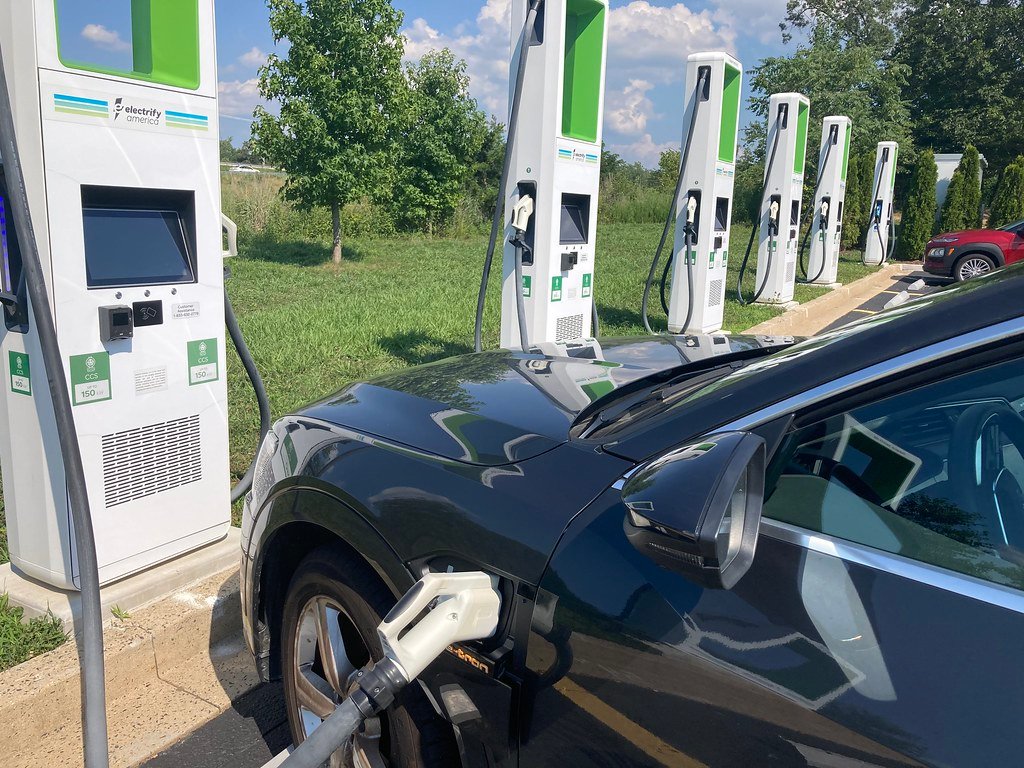From Union of Concerned Scientsts
Summary
- Transitioning from gasoline-powered vehicles to electric vehicles significantly reduces carbon emissions from driving
- The emissions from driving an EV depend on the source of electricity used to recharge it
- The adoption of electric vehicles is crucial in reducing transportation emissions and combating climate change
- Choosing a more efficient EV and utilizing alternative modes of transportation can further reduce emissions
Replacing gasoline with electricity greatly reduces the carbon emissions from driving. Based on where electric vehicles (EVs) have been sold, driving the average EV in the US produces global warming emissions equal to a hypothetical 94 mile per gallon gasoline car, or less than a third of the emissions of the average new gasoline car.
Transportation is the largest sector for emissions, and passenger cars, trucks, and SUVs are the majority of transportation emissions, so there is no way to slow down climate change without a fundamental shift from petroleum to clean electricity to power our vehicles.
When UCS first compared driving an EV to a gasoline car, only 45 percent of the country lived where driving an EV was better than a 50 mpg gasoline car. Now, 93 percent of the country lives where the average EV is better than the most efficient gasoline vehicle (57 mpg). And for the first time, we find that for everyone in the US, driving the most efficient EV produces less global warming emissions than any gasoline-only vehicle available (including non-plug-in hybrids).
[..]
EVs are responsible for less than half the global warming pollution of gasoline cars, even when including emissions from manufacturing.
[...]
Read the full post at Union of Concerned Scientsts.





